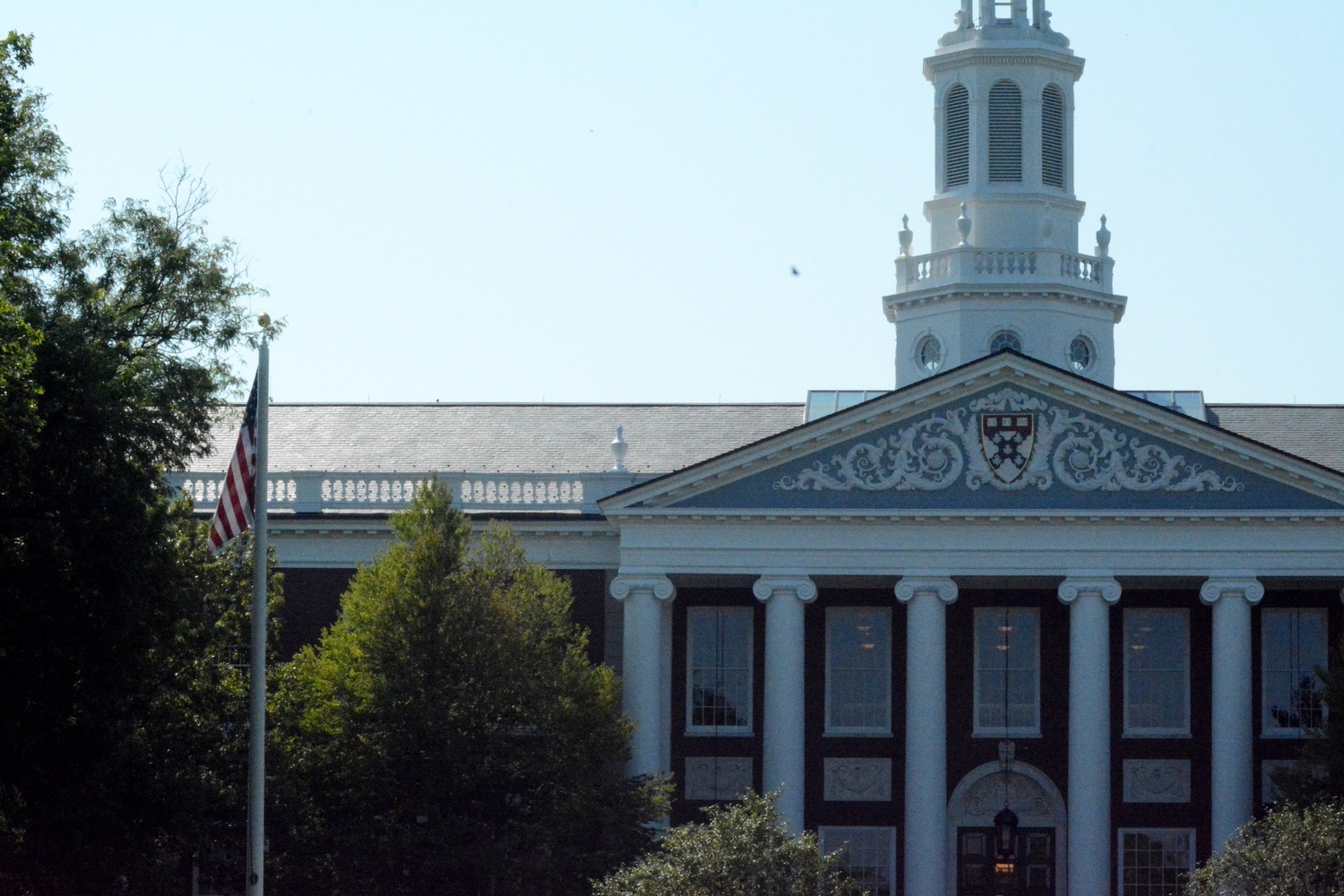
News
When Professors Speak Out, Some Students Stay Quiet. Can Harvard Keep Everyone Talking?

News
Allston Residents, Elected Officials Ask for More Benefits from Harvard’s 10-Year Plan

News
Nobel Laureate Claudia Goldin Warns of Federal Data Misuse at IOP Forum

News
Woman Rescued from Freezing Charles River, Transported to Hospital with Serious Injuries

News
Harvard Researchers Develop New Technology to Map Neural Connections
HBS Task Forces Recommend Anti-Bias Training Updates, Applaud Non-Attribution Policy

Task forces to address antisemitism, Islamophobia, and free speech issues at Harvard Business School recommended policy updates and endorsed the school’s existing non-attribution rules in an update released last week, reporting a pervasive “feeling of invisibility” among Jewish, Arab, and Muslim students.
The four working groups suggested updates to the school’s social media policies and protest restrictions to mirror University-wide policies, established partnerships with Project Shema and the Islamic Network Group, and endorsed HBS’ decision to adopt the Chatham House Rule in the fall.
In a message posted online announcing the recommendations, HBS Dean Srikant M. Datar wrote that further work will be conducted by a faculty and staff steering committee chaired by Senior Lecturer Kristin Mugford ’89, an HBS associate dean.
“For many Jewish, Israeli, Arab, and Muslim members of our community, the past year has been deeply painful,” Datar wrote, adding that affiliates “have felt unsafe and unwelcome at Harvard.”
“This reality was unusual for our community,” Datar wrote. “In the past, many of the challenges we have faced as a School largely united us: from economic downturns to the pandemic, we had a common obstacle to overcome.”
Datar did not explicitly accept the recommendations in his message and a HBS spokesperson declined to comment on if the recommendations will be implemented.
The four working groups were announced by Datar in Nov. 2023 and were created to address antisemitism; anti-Arab bias and Islamophobia; classroom culture; and free speech.
Since then, the groups have surveyed over 200 HBS affiliates and reviewed both formal policies and informal practices at the business school.
“A recurring theme across the working groups was the feeling of invisibility or exclusion experienced by Jewish, Muslim, and Arab community members,” according to the update. “While HBS wants every member of our community to feel valued, the lived experiences of these individuals after October 7 revealed gaps between these ideals and day-to-day reality.”
“Jewish and Muslim students, faculty, and staff expressed belief that their identities were misunderstood or ignored, leading to feelings of isolation,” they added.
The Antisemitism Working Group and the Islamophobia and Anti-Arabism Working Group recommended a series of educational programs and reading lists to educate affiliates on antisemitism and Islamophobia. They also recommended reevaluating hiring practices to recruit and retain more Arab and Muslim faculty members.
“At HBS, while there is significant student and alumni representation, it is a particular challenge for students who see little representation of these identities among the faculty,” they wrote.
The school has agreed to partner with Project Shema and the Islamic Network Group to provide educational resources and training.
Project Shema, an organization focused on addressing antisemitism and “how anti-Jewish ideas and implicit biases can be carried alongside conversations about Israel and Palestine” according to their website, has been enlisted to train faculty and staff.
According to the report, “educational efforts are also underway” with the Islamic Network Group, which provides educational resources and lesson plans on Islamophobia and Islam.
These working groups have also called on HBS to rework its curriculum to accurately reflect Jewish, Israeli, Arab, and Muslim identities while avoiding “tropes and harmful stereotypes.” They recommended that the Masters in Business Administration program add more cases and class discussions that do so, along with addressing tropes and stereotypes in existing cases.
“HBS can broaden these discussions and contribute to a more nuanced understanding of cultural and religious diversity in business,” they wrote. “The School must explicitly equip students to identify and address intolerance they are likely to encounter in their professional and personal lives.”
According to an October 2024 pulse survey at HBS, 35 percent of student respondents described themselves as “somewhat or very reluctant to speak up and give their views on controversial issues in the classroom.” Of those students, 90 percent cited concerns that other students would criticize their views and opinions outside of the classroom environment.
In response, HBS has adopted the Chatham House Rules, which allows students to discuss comments made in classrooms but without attributing them to classmates. The policy has been adopted by several other Harvard schools and was included in a University-wide report on free speech in the fall.
“Because personal reputation is a cherished asset at HBS, community members worry that the potential cost of well-intended speech outweighs its benefits,” the update read.
In his message accompanying the update, Datar said the changes will align with Harvard’s recent settlements for antisemitism lawsuits. He wrote that the school will follow “guidance from the U.S. Department of Education in considering the International Holocaust Remembrance Alliance (IHRA) definition of antisemitism” — a particularly controversial agreement among Harvard faculty and students for its classification of certain criticisms of Israel and Antisemitism.
But in the update, the task forces provided two additional “widely-used” definitions from the Anti-Defamation League and the Jerusalem Declaration on Antisemitism to consider.
“In the future, while efforts to combat hatred and religious intolerance of all types should be central to the HBS agenda, an instinct toward even-handedness must be balanced with a thorough understanding of the distinctive perils of antisemitism,” they wrote.
“The School must take up efforts to address bigotry and hatred of any sort and be alert to the specific attention and measures required to combat antisemitism,” the report added.
According to the update, more recommendations by the free speech working group will be included in an upcoming 2023 Community Values Report.
—Staff writer Graham W. Lee can be reached at graham.lee@thecrimson.com. Follow him on X @grahamwonlee.
Want to keep up with breaking news? Subscribe to our email newsletter.
